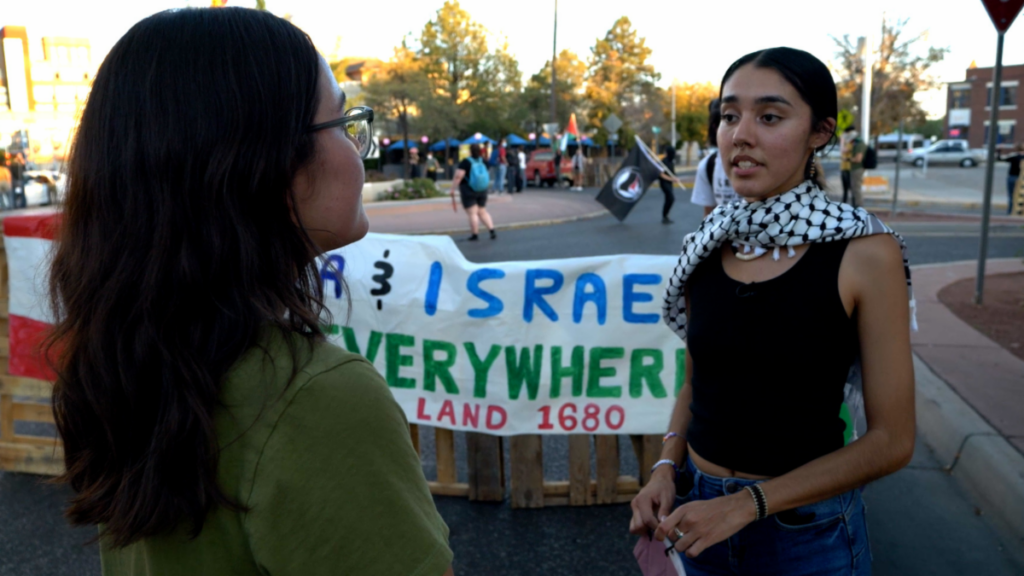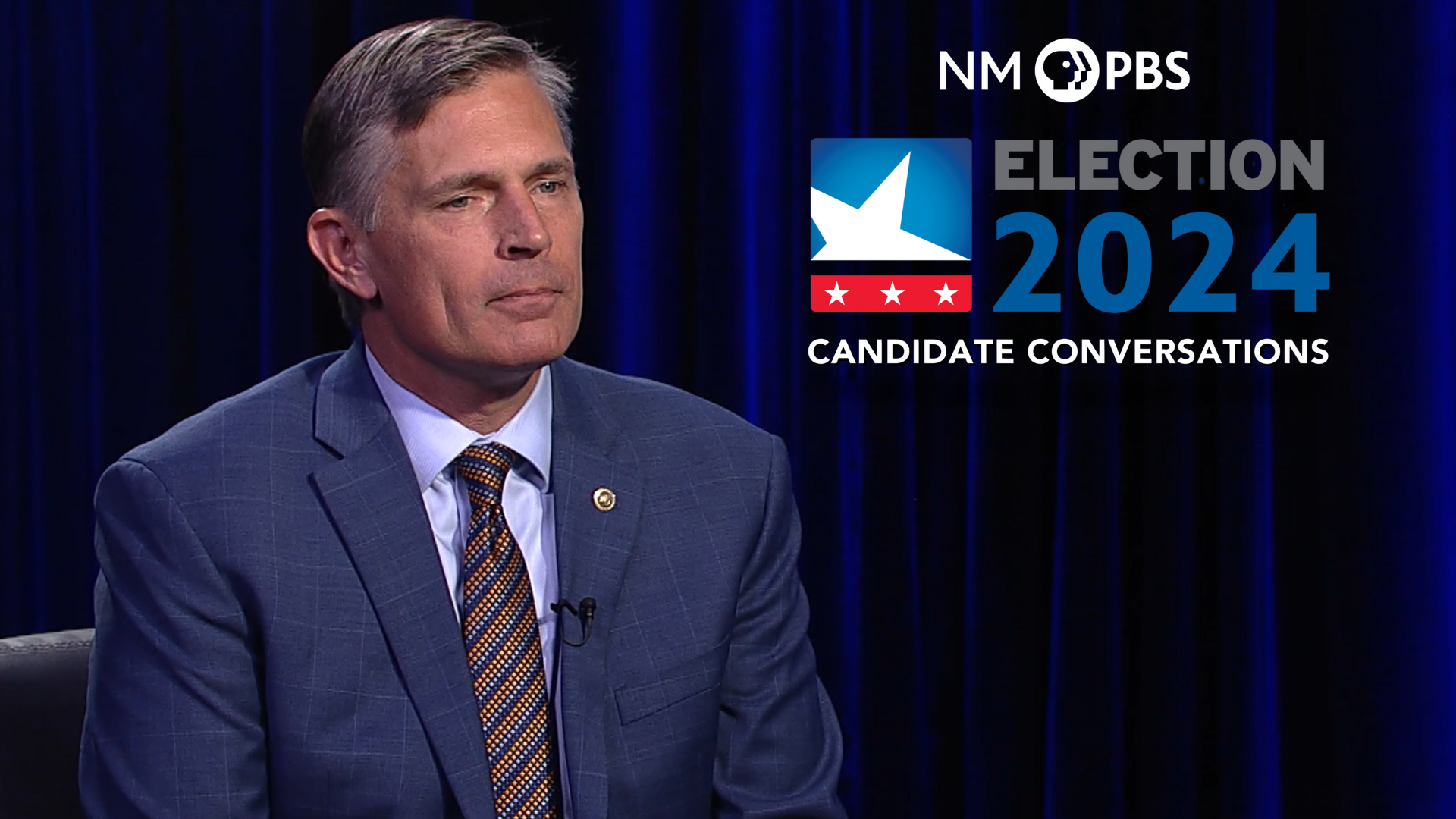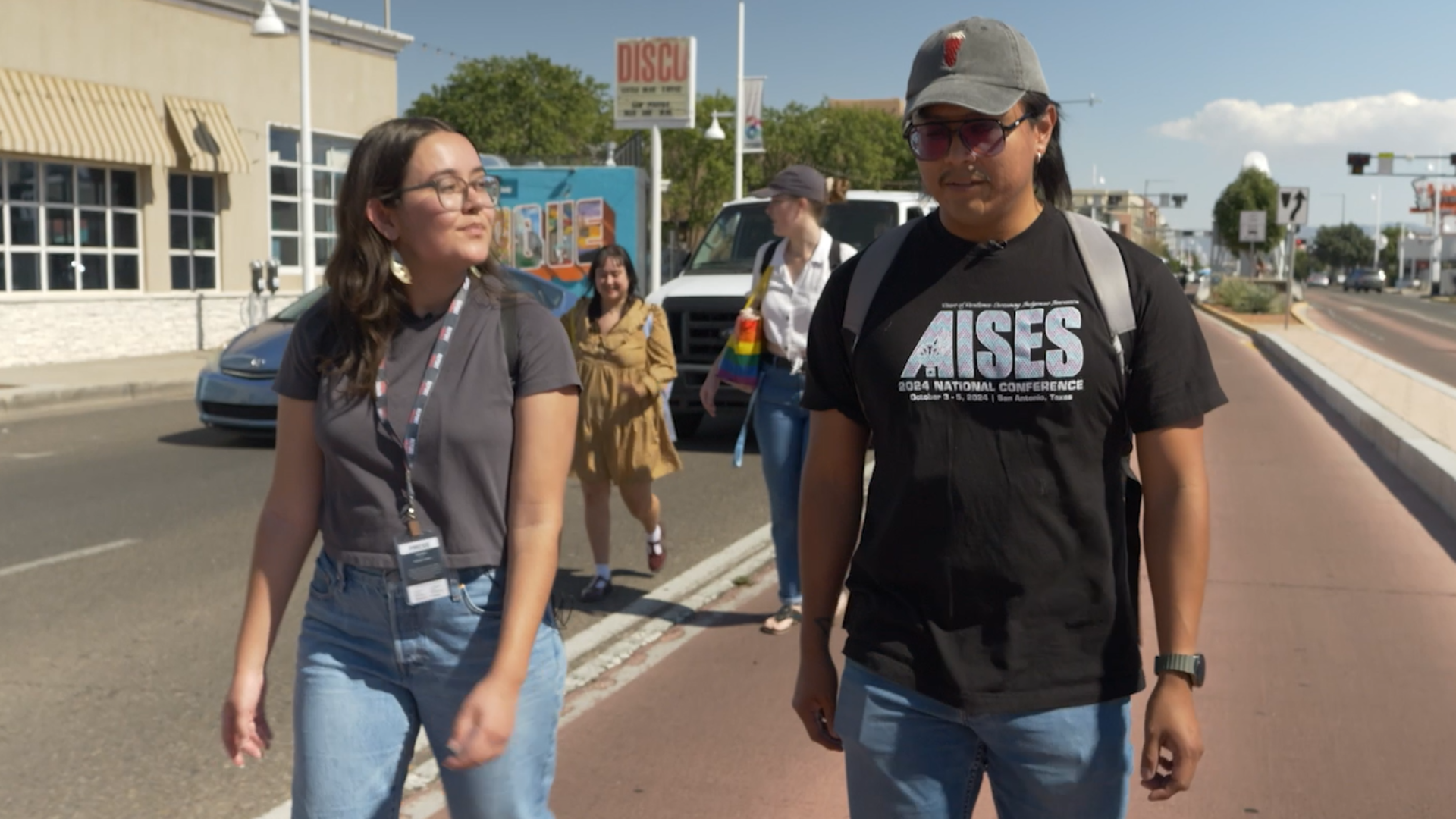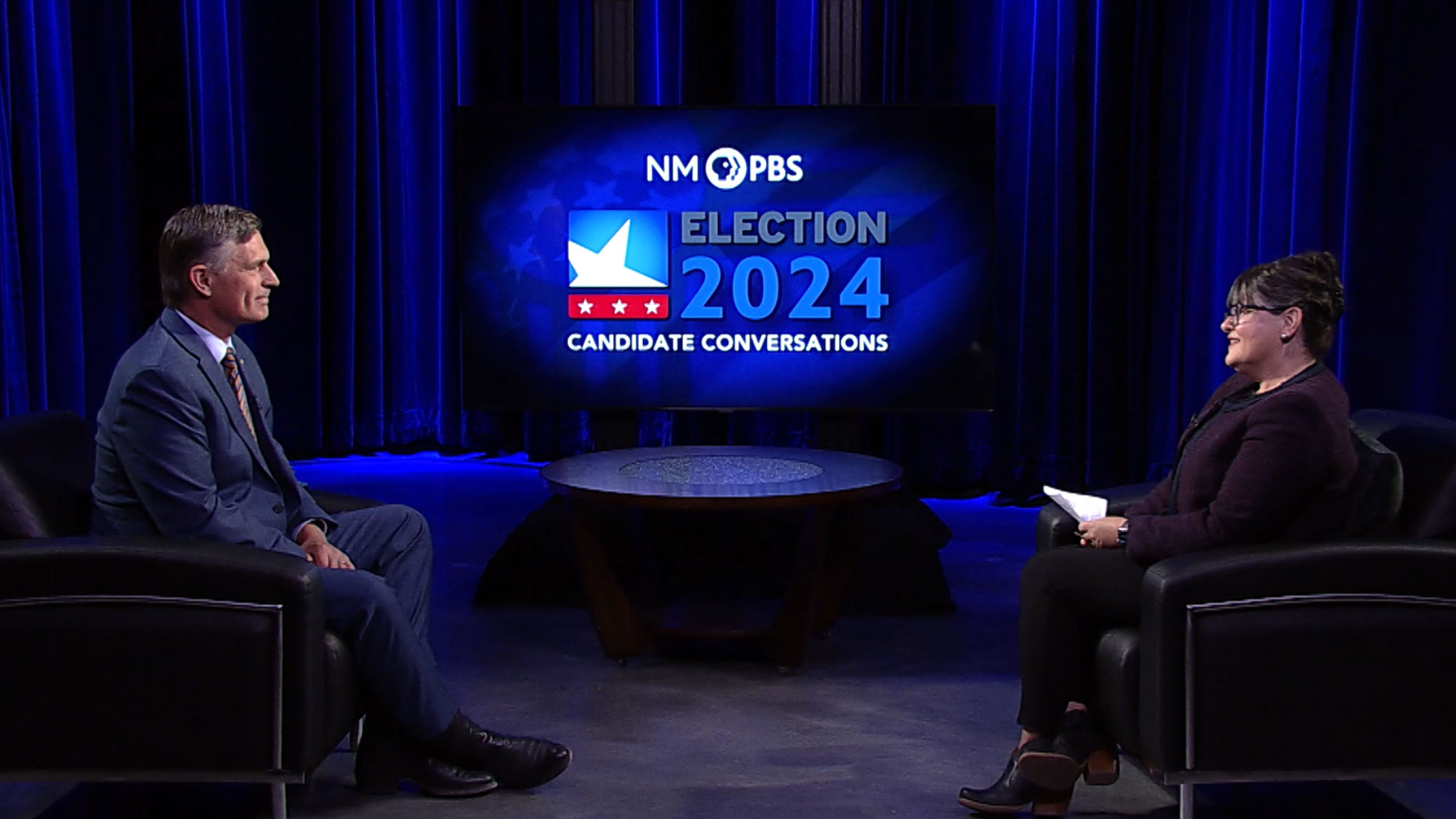Gaza Looms Over Election for some Native People

Nicole Pelt (Diné) says she’s voting for Kamala Harris, partly because she’s worried a second Donald Trump presidency will lead to lost reproductive and LGBTQ rights. She mentions Project 2025, a 920-page policy plan crafted in part by former Trump administration officials. It proposes, among many other initiatives, significantly expanding presidential power, banning abortion pills and shuttering the Department of Education.
In past elections, Dr. Andre Montoya-Barthelemy (Dakota/Anishinaabe/Pima) has consistently supported Democrats. That’s changing this year. He says he won’t vote for Harris, primarily because of the Biden administration’s support for Israel’s war in Gaza. Seeing Palestinians forced to flee their homes makes him think about forced relocations of Native Americans “and the grandparents and the ancestors that I never knew,” he says, holding back tears.
Those are a couple of the perspectives about the election I heard during conversations with Native people earlier this month on the University of New Mexico’s Albuquerque campus and downtown at a protest for Palestine.
The conversations are featured in a segment created in collaboration with New Mexico PBS, which airs tonight on the hour-long news show New Mexico in Focus. I’d like to thank the team at the station, and particularly multimedia producer Benjamin Yazza, for their work on it.
I started thinking about the collaboration after talking with Ahtza Dawn Chavez (Diné/Kewa Pueblo). She’s the executive director of NM Native Vote, an Albuquerque-based, nonprofit organization focused partly on encouraging Native people to vote. I wanted to talk with Chavez to learn what she’s hearing from Native voters this year and the barriers many face in trying to cast a ballot. Notably, Native people living on reservations in New Mexico didn’t have the right to vote until 1948 — 24 years after becoming U.S. citizens.
Chavez remembers driving elders and other relatives to the polls when she was too young to cast a ballot herself. She learned from her parents and grandparents “how much power we leave on the table by not utilizing our voices and our votes.”
Navajo and Hopi voters are credited with helping Joe Biden win Arizona in 2020. Most polls show Harris and Trump in a neck-and-neck race in battleground states, including Arizona. Harris is likely to win New Mexico, according to polls, but Native voters could be key to who wins contested legislative seats. Native people are expected to make up 5-6% of total voters in New Mexico this cycle, according to longtime pollster Brian Sanderoff.
Voting is a way to improve the lives of Native people in New Mexico and nationwide, Chavez said. But, she noted, there are complex feelings around voting in Native communities.
“I would say there’s definitely folks within our community that feel like participating in the larger governance makes you a sellout, like we shouldn’t participate in anything that takes our Indigeneity away from us, that takes away our rights,” Chavez said. And there are “a lot of youth that are, quite frankly, fed up with the two-party system, and feeling that neither of them speaks to their needs or their wants.”
This year, adding to a deep-seated skepticism of voting that some hold, Chavez said she’s hearing a lot of concern among young Native people over voting in the presidential race because of U.S. support for Israel’s war in Gaza.
I wanted to dig into what Chavez told me and hear from young Native people directly. That resulted in conversations with UNM students, an alum and a faculty member. (I also contacted Republican and Democratic college student groups for this story but did not hear back from either.) I appreciate how open they all were, and I hope you’ll take some time to listen to what they had to say.
– Bella Davis, Indigenous Affairs Reporter New Mexico In Depth
This story was a collaboration between NMPBS and New Mexico In Depth, one of our partners. Bella Davis was the reporter/producer for the piece; NMPBS Multimedia Producer Benjamin Yazza directed and produced it; NMPBS’ Joey Dunn and Noah Eichstaedt contributed camera work.
-
Sen. Martin Heinrich on Abortion, Gun Control & AI
10.18.24 – In the second half of her interview with Senator Martin Heinrich, politics correspondent Gwyneth Doland asks about his stance…
-
Native Voices on the Election
10.18.24 – In a collaboration with New Mexico in Depth, Indigenous Affairs Reporter Bella Davis speaks with several Native people about…
-
Sen. Martin Heinrich on Crime in NM & Border Security
10.18.24 – We begin our 2024 election interviews with U.S. Sen. Martin Heinrich, D-N.M., as politics correspondent Gwyneth Doland asks about…




